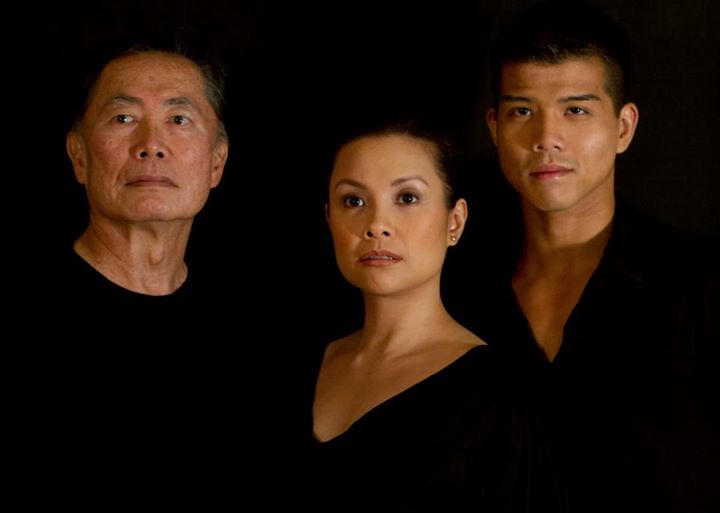It has been 12 years since Tony Award-winning Filipino singer-actress Lea Salonga last trod the boards of Broadway as a leading lady—in the interim, she tied the knot with businessman Rob Chien and raised daughter Nicole, now 8 years old.
In October, Salonga, who originated the role of Kim in “Miss Saigon,” will return to Broadway in the musical “Allegiance,” which is based on “Star Trek” actor George Takei’s childhood in an internment camp during World War II.
The last time Salonga played the lead on Broadway was in the 2003 revival of Rodgers and Hammerstein’s “Flower Drum Song.” In 2007, she had a stint on the Great White Way as Fantine in “Les Miserables.”
Although she was part of the original staging of “Allegiance” at the Old Globe Theater in San Diego three years ago, she officially joined the Broadway cast at the last minute—keeping fans in suspense.
Salonga was in New York when the announcement about her participation in the musical was made Thursday. She is in the Big Apple for a one-night-only concert, titled “Kaleidoscope,” set for today at Town Hall.
Like spring again
“It feels fantastic to be back in New York,” Salonga told the Inquirer via e-mail. “I am glad I am here for the big announcement. It’s very exciting.”
Last week, on her arrival in the United States, New York was deep in snow.
“We were talking subzero temperatures,” she said. “But right now, it feels like spring is near and it’s been gorgeous every day.”
“Allegiance” marks a new beginning in Salonga’s career. She described “Allegiance” as “relevant, transformative” theater.
As if only yesterday
“We all feel incredibly passionate about its story,” she said. “George Takei’s life inspired the show’s creation.”
Salonga recounted how Takei’s family “was sent off to camp when he was 5 years old. The Takeis were taken to Rohwer Camp in Arkansas, and later to a camp in Tule Lake, California, a facility reserved for the most rebellious of internees.”
Salonga gets goose bumps every time Takei talks about those dark years in US history.
“It’s a story that George tells with so much passion as if it all happened yesterday,” she said. “It’s a story that has not lost an ounce of its bite each time he tells it.
“He remembers seeing the bayonets pointed at his parents… the dry barren landscape of the camps… the spotlights that he thought lit his way to the commode at night… and how they had nothing once they were released.”
Historical importance
Although deeply personal, it’s also staunchly political and can be contentious in the light of current global issues. Salonga is keenly aware of the play’s potential to stir controversy.
“It has major historical importance,” she said. “Over 125,000 Japanese-American citizens were placed behind barbed-wire fences just because they looked like the people who bombed Pearl Harbor. We feel strongly about telling this story because if it could happen once, it could very well happen again.”
Intolerance still rears its ugly head, whether in the United States, in the Middle East or in Mindanao, she pointed out.
“Only because of their appearance, George and his family were immediately subjected to intense scrutiny, suspicion, prejudice and bigotry. Sound familiar?” she said.
Personal resonance
“In post-9/11 America, this kind of racism is still happening, only this time to the Muslim-American community. We can see history repeating itself. It’s very scary.”
The story bears personal resonance to Salonga as well because her husband is Japanese-Chinese-American.
“Which makes my daughter Nicole a quarter Japanese, but Japanese enough to make this story count,” she said.
“It resonates because Rob has relatives who served in the military (during World War II), in the 42nd, known as the Army’s bravest unit, risking life and limb to prove their allegiance to the US. However, internment caused a great rift in the community, pitting family members against each other. It still remains a very divisive issue.”
Asian cast
In the musical, Salonga plays Kei Kimura, the big sister of the clan, who “eventually starts to bloom and find herself” in spite of, and because of, adversities in the internment camp.
“I try to look at the women in my own family for inspiration,” she said, explaining her preparation for the part. “Strong, steely women. I see Kei as a quietly courageous woman whom you should try not to cross.”
Apart from its social relevance, “Allegiance” is also significant for having a predominantly Asian cast. Aside from Takei and Salonga, another original cast member, Chinese-American actor Telly Leung, joins the Broadway production.
“It’s a huge deal having a show with a large Asian cast, but it’s very risky as well,” she admitted. “I’m keeping my fingers crossed that the story is what will keep us going. It’s a story worth fighting for.”
Premiere Nov. 8
Rehearsals begin on Aug. 23, with previews starting on Oct. 6 and the premiere on Nov. 8.
Salonga, however, will take part in the rehearsals a week after the official start. “I will join them in September,” she said.
ABS-CBN’s “The Voice Kids,” where she is one of the coaches, ends on Aug. 30. “So I cannot leave Manila until after then. But I’ve got time carved out for ‘The Voice,’ so I’m all set.”
In any case, she is looking forward to reuniting with the “Allegiance” cast and crew.
“The entire team is wonderful to work with,” Salonga said. “Our director Stafford Arima has this zen-like quality. (Composer) Jay Kuo, (co-lyricists and book writers) Marc Acito and Lorenzo Thione are amazing, too. I’m very lucky.”
RELATED STORIES
Lea Salonga says she is in talks on taking role in Broadway’s ‘Allegiance’
Make a statement through your actions
